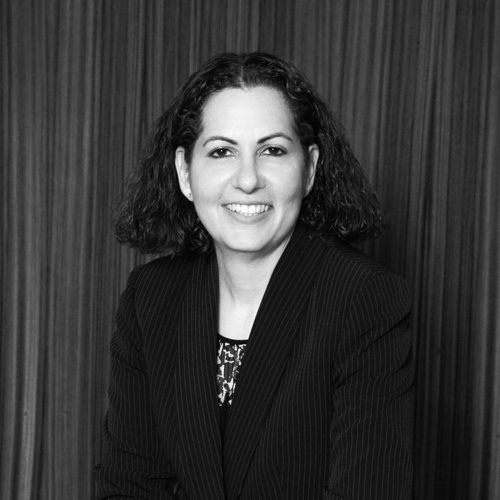
It’s been said that breaking up is hard to do, but in some cases, it enables the disjoined parts to be stronger than ever. Take, for instance, student loan company Sallie Mae, which split into two businesses in 2014. Formed in 2005, Sallie Mae Bank operates as an independent consumer bank offering saving products and private student loans directly, while all of the company’s pre-2014 businesses, including the federal student loan business, went their own way as Navient Corporation.
Executing the split—considering the numerous intertwined functions—was similar to separating conjoined twins, explains Laurent Lutz, executive vice president, general counsel, and corporate secretary of Sallie Mae. With that work completed, Sallie Mae has continued to focus on the future, spearheading customer service innovations and creating new opportunities for its legal staff. Lutz could have chosen to work for either of the two post-separated enterprises. He chose Sallie Mae, the smaller of the two, largely because he wanted more opportunities to mentor young lawyers.
Attending to career development of staff was one aspect he didn’t have much time for before the split, due to his extensive organization-wide responsibilities. He realized that training younger staff members would be necessary for the new, smaller Sallie Mae. And, recalling the guidance he received earlier in his career, he looked forward to providing it to others.
“It’s rewarding to watch people grow,” Lutz says. How employees progress on the job and show loyalty are measures of a manager’s effectiveness, he adds. One piece of advice that Lutz heard earlier in his career, “You’re not getting anywhere unless your people support you,” still rings true to this day.
Lutz’s way of gaining this support was to encourage his staff to move outside of well-worn paths into new terrain. Before the split, much of Sallie Mae’s twenty-lawyer-team had narrowly defined roles and responsibilities. There were specialists in Department of Education regulatory compliance, data privacy, state banking laws, and other areas. After the split, the new Sallie Mae would have just twelve lawyers, and it would have to function differently in order to support a much higher-growth business. “We couldn’t afford to have an expert in every area of law or rely too heavily on outside counsel,” Lutz says. “But we also couldn’t take the risk of letting people dabble.” That meant in-house lawyers had to commit to deep cross-training in unfamiliar disciplines.
Many people eagerly stepped up to learn new roles. Lutz developed what turned out to be “old-fashioned apprenticeships” for team members who tagged along with the general counsel for the better part of a year. For example, they accompanied him to meetings, where executives went over SEC financial reporting matters. “They learned, say, what the parts of a 10K are and why—tedious due diligence basics—they are building blocks for other things,” Lutz explains. This was an exercise in building sweat equity in which young lawyers developed a framework for becoming well-rounded professionals.
One of the key areas of focus for Sallie Mae since the split has been improving the customer experience from application through repayment. Post-spin, this customer-first approach meant putting in place new policies, procedures, operations, and technology platforms. The company also moved all customer service for its private student loans to the United States. To respond to the needs of its customers, it also launched an award-winning mobile app and Apple Watch app.
“If you want to learn to be a good lawyer, you probably need to go someplace where they need a good lawyer—where there are complex problems to be solved.”
“We’re listening to our customers who want a streamlined, straightforward process, so we’ve reduced the number of touch points so they can get as much done as possible on their own, whether they are using our newly designed website, simplified loan application, or mobile apps,” Lutz says.
Legal support for these customer service enhancements include not only contract negotiation, but also areas as diverse as investigating the data privacy ramifications and other regulatory and business considerations. These can affect the decision whether to buy solutions or services from third parties, or to build them in-house.
“We want to be part of the execution of the business strategy instead of just a gatekeeper or defender of previously made decisions,” Lutz says.
For instance, legal was intimately involved in developing simplified explanatory scripts for phone service representatives as they assist customers. This resulted in saving time and providing customers with faster access to more understandable information. “We spent an enormous amount of time on this,” Lutz recalls.
Lutz acknowledges that his approach can be a bit of a dare, but it’s one that he has seen pay dividends in his own career and those who work with him. A senior attorney once expressed her gratitude ironically. “She told me I was the best/worst boss she ever had,” Lutz says. That might be a funny way of putting it, but Lutz took it as a hearty compliment that speaks to his advice for young attorneys. “If you want to learn to be a good lawyer, you probably need to go someplace where they need a good lawyer—where there are complex problems to be solved,” he says. “Hold yourself accountable for solving them—no matter what.”
Lutz realizes that finding those opportunities means that some lawyers may have to venture elsewhere. “You cannot expect somebody to be in the same place for forty years,” Lutz says. “That’s not the way the world works today.”
On the other hand, he says, if you’ve developed an environment where lawyers are encouraged to take chances and broaden their skills, then there’s a good chance they will come back to your organization. And that might be the most rewarding compliment a manager could receive.


